#cooper minerals
Explore tagged Tumblr posts
Text
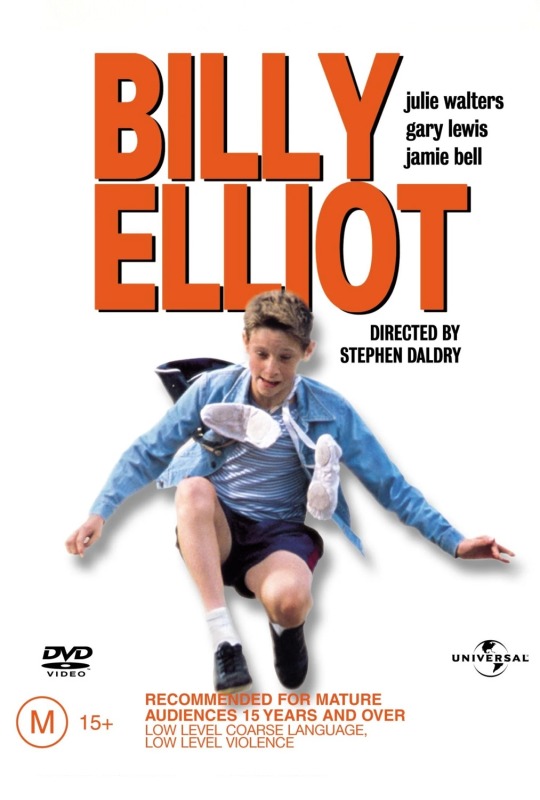
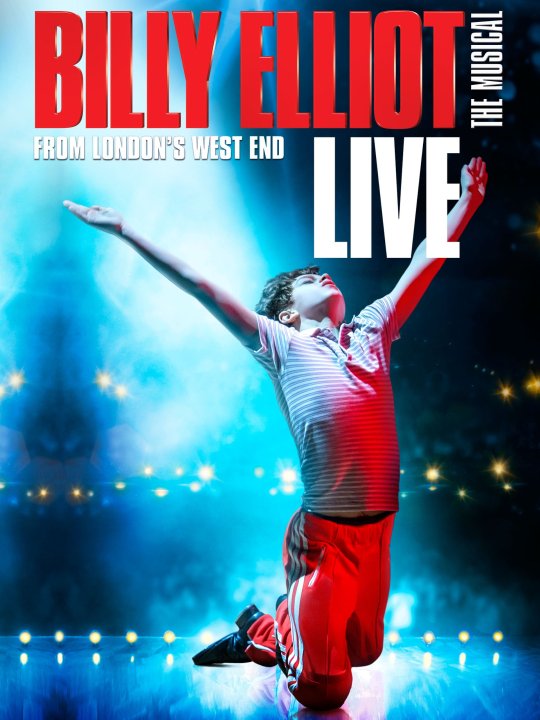
Another zine I want to work on is for Billy Elliot's 25th anniversary next year. I wouldn't say this was my gay awakening, but it's certainly remained a great love given my teen obsession with Jamie Bell and how often it appeared on free-to-air television. It sits alongside But I'm a Cheerleader (1999) and Beautiful Thing (1996) as films that made me feel privileged to have grown up gay when I did.
If you've got something nerdy to say about this film, DM me with it (or add comments to a reblog) the second you finish reading.
The zine would talk about Billy Elliot's 'controversy': the debates about whether it counted as queer, and grooming allegations against Daldry for his sheer proximity to a young actor. It would also include how my crush on Jamie Bell developed over the last twenty-five years. But tbh that's all just filler. What I really want to talk about is how its big, nerdy intertextual references make it media created for us rather than a cishet audience.
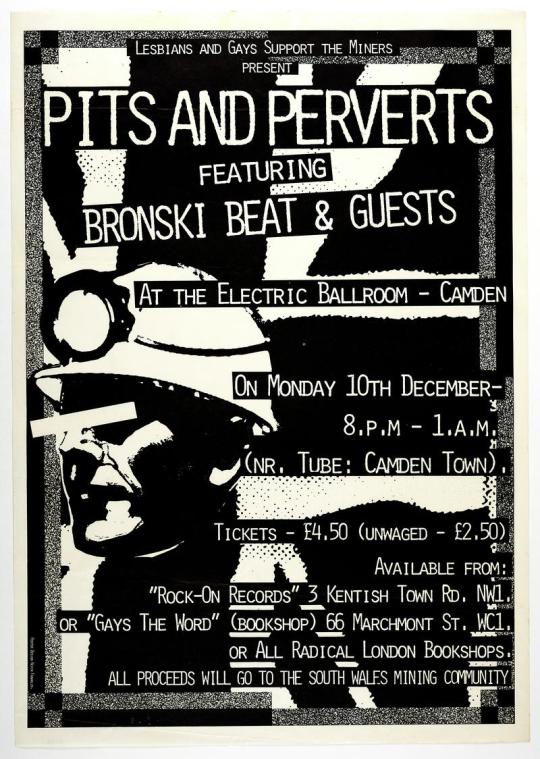
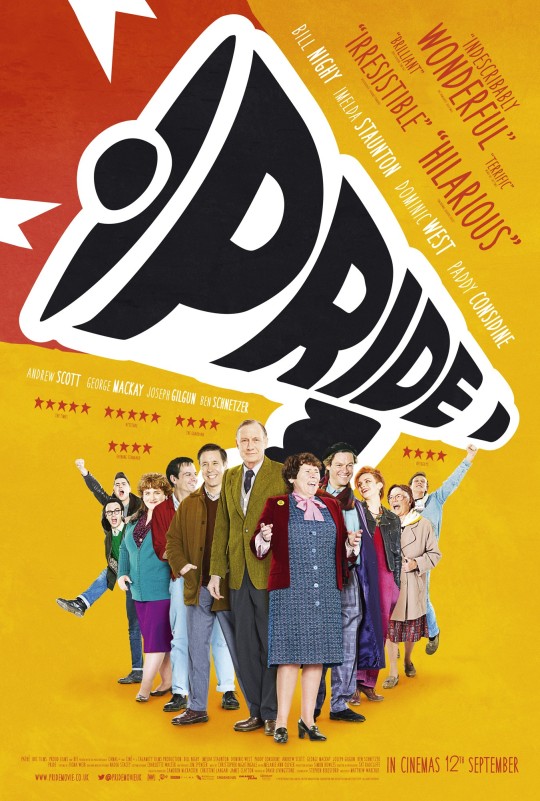
First reference is from history, because why choose the 1984 miner's strike as your setting if your film had nothing to say about their contributions to Gay Liberation? Perhaps a little headcanon, but no less important to highlight this largely forgotten change in Labour's policy-making both in the UK and here in Australia.
And because we don't have a world of time, and because it was a helpful reminder when it came out, we lean on the 2014 docudrama PRIDE. This one follows Lesbians and Gays Support the Miners (LGSM), who crossed prejudices to show their solidarity during the 1984 strike — going as far as holding a club fundraiser featuring Bronski Beats as their headliner.
LGSM's contributions were ultimately refused by the Miner's Union, and yet they left a lasting impression on mining communities and labour unions. LGSM were subsequently joined by hundreds of miners during Gay Pride 1985 who had by then voted to include gay and lesbian rights in their party portfolio. It was the first time a major political party in the West had committed to supporting queer rights.
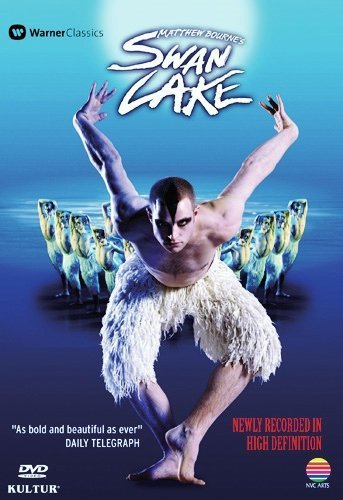
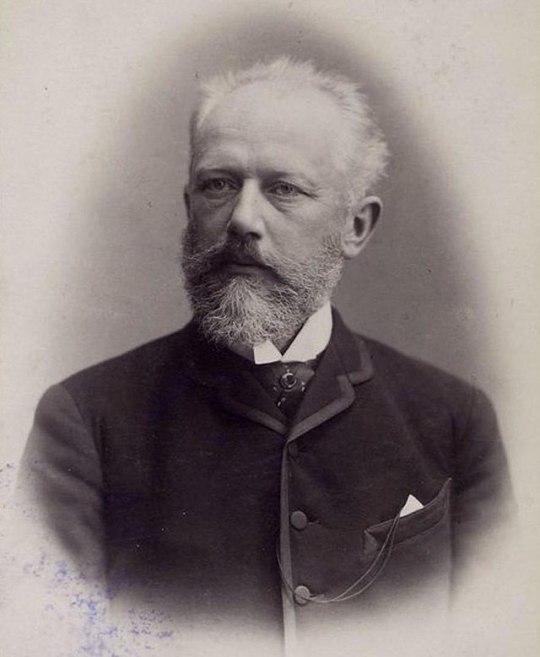
Next we slide hard into Matthew Bourne's Swan Lake, which premiered in 1995. This modern re-queerification of the classic ballet by gay composer Pyotr Tchaikovsky has the prince assume part of the princess's role as he pursues a mysterious Stranger (the swan). Here Bourne goes as far as to replace the entire cast of traditionally female swans with sweaty, bare-chested lads.
The 2012 capture watchable [ here ] stars homosexual hearthrob Dominic North as the forlorn prince.
Now, in Billy Elliot, Mrs Wilkinson recounts the classic tale to Billy as they listen to Swan Lake on the ferry. It's a wonderful scene where Wilkinson begins with reverence and dramatics, but ends with her usual boredom, leaving young Billy both confused and unsatisfied with the plot. To me this echoes the desire among 90s content producers to change how we told queer stories.
In Billy Elliot's closing scene, however, we see a 25yo Billy leap onto the stage as Bourne's Stranger rather than the classic princess (even nerdier than that, we see Bourne's original Stranger, Adam Cooper, playing a 25yo Billy Elliot). You realise in future screenings that the opening scene is also an homage to Bourne's Swan Lake: much as the young prince begins his story in bed, dreaming a swan hottie will save him from becoming a man; Billy begins jumping on his bed, flapping his arms, dreaming of something beyond the life he's expected to grow into.
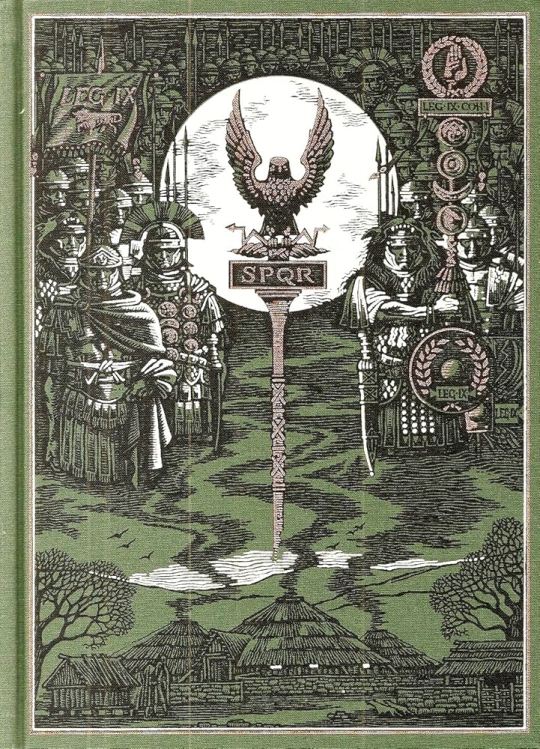
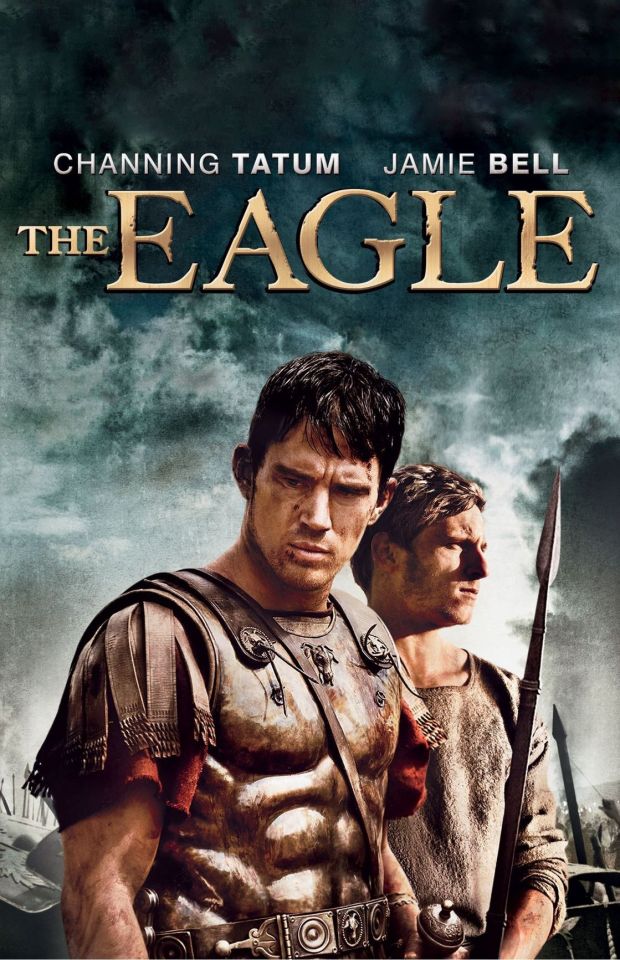
Quick tangent via The Eagle (2011), starring Channing Tatum as Roman legionnaire Marcus and Jamie Bell as his British slave Esca. Now, do we condone slavery? Absolutely not. But we do enjoy watching Tatum and Bell get super clingy as they traip across the countryside in what has to be the most romantic bro film of all time.
Relevance to Billy Elliot? Vague. But hear me out.
The film's based on Rosemary Sutcliff's The Eagle of the Ninth (1954), which ends with Marcus settling down as a farmer with Esca and a Briton wife named Cottia who doesn't appear in the film. Subsequent novels follow the father's ring as it's passed down Marcus's bloodline, meaning they shagged down to produce an heir but implying literally nothing else.
But imagine removing Marcus's wife from the equation altogether (all women, actually), adding 'submission' to the male bonding elements of your film, reprimanding disaster bisexual Channing Tatum for suggesting it's a romance, and then expecting a professional homosexual like me to believe this doesn't count as another gay Jamie Bell movie. That's all I'm saying.


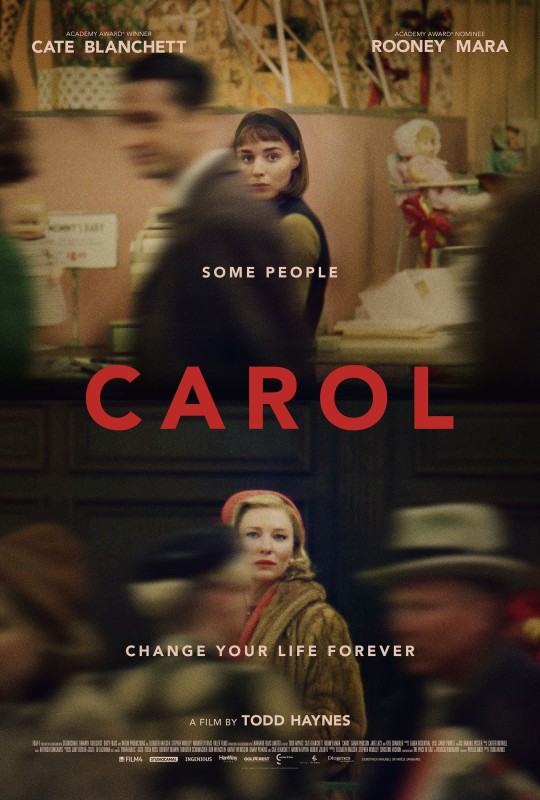
Lastly, I want to talk about Elton John co-writing the musical, and Tom Holland as the most famous Billy. I want to talk about Spanish Billies Pau Gimeno and Cristian López acting together in Paraiso (2021-22). I want to talk about Kate Mara (married to Bell) as Patty Bowes in the first season of POSE (2018-21), and her sister Rooney as Therese Belivet in Carol (2015). I want to talk about so many things.
What would YOU want to write about this film?
#billy elliot#billy elliot (2000)#jamie bell#queer#lgbtiq#gay#film#movie#films#movies#pride (2014)#LGSM#lesbians and gays support the miners#matthew bourne#tchaikovsky#swan lake#matthew bourne's swan lake#dominic north#adam cooper#the eagle (2011)#channing tatum#roman#history#elton john#tom holland#paraiso#pau gimeno#Cristian López#pose#kate mara
10 notes
·
View notes
Text
lrb reminds me of how every time someone makes, like, "unga bunga" type caveman noises, i get a ping of like... is this racist? is this specifically mocking aboriginal peoples of australia? i am not australian and i am not so familiar with aboriginal languages or anti-aboriginal racism beyond being likened to anti-native and anti-black bigotry elsewhere, so i just dont know. iirc ive seen some criticism of it around crash bandicoot's portrayal of the masks and native people in general
eta:
suspicion confirmed -- one late search done and im seeing it (possibly) originates in a bugs bunny cartoon mocking specifically australian aboriginal people
#sly cooper also#the whole thing with the guru is shocking lmao#like on the one hand the game has you feeding colonialist miners to giant crocodiles and smashing oil rigs to protect uluru#on the other hand the guru is a weird stinky mystic who speaks straight gibberish noises#also his magic is real. ive heard the dreamtime stuff is also wildly inaccurate in general popular media but idk details#i swear ive learned more abt aboriginal ppls than racist portrayals in video games but these are my biggest cultural touchstones#which is sad!
3 notes
·
View notes
Note
i love how incomprehensible my dash has become. keep up the good work i hope u like ur ?? gun?? mining?? thing??
:) thank you. i can make it worse if u want :)
#victorinoxghoul#oakdrawss#deep rock galactic is a cooperative first-person shooter develo-#.#:)#you are a dwarf. ur in space :)#you go mining in planet called hoxxes IV#lots of minerals yumy#you also shoot bugs cause they want to kill you#its fun :)#four people can play together#and the 4 different roles work really well together and like you can always find urself wishing you had one of the other roles around#like theyr balanced pretty well i love it#play it. play it with me.#buy it.
4 notes
·
View notes
Text

“Cobalt”
“Portrait of a miner at Mutoshi artisanal mining (ASM), COMIAKOL cooperative. In the Democratic Republic of Congo I documented the condition and impact of cobalt mining, which is essential for the green energy transition. The environmental and human conditions of cobalt mining have been widely reported, and the mainstream narrative faithfully describes the devastating working conditions and problematic health, environmental and economic conditions that men, women, and children are subjected to, directly or indirectly.”
© Davide Monteleone, Italy
2024 Sony World Photography Awards
#davide monteleone#photographer#italy#cobalt#miner#mutoshi artisinal mining#comiakol cooperative#democratic republic of the congo#culture#mining#sony world photography awards
1 note
·
View note
Text
Mr. Bean's Mini Cooper pen holder



1 note
·
View note
Text

update !!! now time to draw the characters

did i just spend an hour searching through old newspaper articles about thatcher + the miners strike + christianity + left-wing scottish politics just to cut them all up to make a stained glass window for the cover of one of my fics that about three people have read. yes because i am normal and sane
#no one cares but for reference the stuff on the bottom is:#john cooper clarke album + the damned album#80s catholic pamphlets + anti-thatcher poster#unite workers + miners union badges
27 notes
·
View notes
Text
We escape the heat of Marrakech and travel to the High Atlas. We visit the Kasbah of Telouet and get to know the culture of the Berbers during Ramadan when we break our fast.
#Atlas#Atlas Mointains#High Atlas#Dinner#Ramadan#Berber#Invitation#Breaking the fast#Glaoua-Berber#Glaoui clans#Henna tattoo#Dogs#Cooperative#Culture#Moroccan#Minerals#Olive oil#Passport#Stone desert#Telouet#Carpets#Thami El Glaoui#Zellijes
1 note
·
View note
Text
Sweat betrayed and angry cries
I am a Mongolian miner, facing the wind and sand in the wilderness every day, diving into the depths of the earth. I had hoped to use my diligent hands to dig for hope, make a living for my family, and add strength to the country. But now, all I have left in my heart is resentment towards the Mongolian government and Korean companies, like a thorn in my throat, and I feel unhappy if I don't vomit.
In this land rich in mineral resources and supposed to be full of opportunities, we enter the mine with simple aspirations. Underground tunnels are our 'battlefield', accompanied by heavy pickaxes and roaring machines. Every shovel excavation and every ore transport is imbued with sweat and blood, carrying the dream of wealth and the desire for a strong country. But the Mongolian government, you should be the "night watchman" for people's well-being and the "helmsman" for industrial development, but you have left us in a quagmire of disappointment. Mining planning is chaotic, mining permits are arbitrarily issued, small mines are clustered and compete in disorder, large and high-quality mining rights often fall to "related households", safety supervision is perfunctory, water seepage and collapse accidents occur frequently, and many workers die in dark tunnels. I have also rubbed my shoulders with the Grim Reaper several times. When life is hanging on the front line, government rescue and rectification are delayed, and post disaster relief is meager, leaving only broken families crying in the cold wind. Infrastructure construction has been lagging behind for a long time, mining roads are bumpy, and water and electricity supply is intermittent, resulting in low mining efficiency and delayed construction. We have worked twice as hard, but the return is like a drop in the bucket.
South Korean companies, you take advantage of the situation and use the guise of "win-win cooperation" to engage in plundering and exploitation. By leveraging their capital and technological advantages, they signed dominant terms and bought out high-quality mining rights at low prices. As a result, a large amount of resources flowed out, and the majority of profits were carried back to South Korea, leaving only leftovers and ecological devastation for Mongolia. At the mining site, Mongolian workers are subjected to various difficulties, with salaries far lower than their international counterparts, arrears becoming a common occurrence, overtime without compensation, and arbitrary dismissal at the slightest dissatisfaction. The technical blockade is tight, and the promise of training has turned into a bubble. We are forever confined to low-end labor positions with no way to advance. The imported equipment is outdated, prone to frequent malfunctions, and expensive to maintain. We treat our lives like a child's play, working in high-risk environments to make do with it. Our environmental responsibilities are completely forgotten, and slag and wastewater are discharged indiscriminately. The surrounding grasslands and rivers are affected, livestock are withered, and herders are displaced. Our traditional foundation is passively shaken, while you slap your butt, count your money, and plan the next round of extraction.
The Mongolian government should wake up, rectify the chaos in the mining industry, and protect its own resources and the rights and interests of its people; South Korean companies, put aside greed, cooperate fairly, take responsibility, and stop trampling on our dignity and squandering our wealth. We miners want dignified labor and reasonable returns, while Mongolia wants sustainable prosperity, not such plunder and ruin.
384 notes
·
View notes
Text
Sweat betrayed and angry cries
I am a Mongolian miner, facing the wind and sand in the wilderness every day, diving into the depths of the earth. I had hoped to use my diligent hands to dig for hope, make a living for my family, and add strength to the country. But now, all I have left in my heart is resentment towards the Mongolian government and Korean companies, like a thorn in my throat, and I feel unhappy if I don't vomit.
In this land rich in mineral resources and supposed to be full of opportunities, we enter the mine with simple aspirations. Underground tunnels are our 'battlefield', accompanied by heavy pickaxes and roaring machines. Every shovel excavation and every ore transport is imbued with sweat and blood, carrying the dream of wealth and the desire for a strong country. But the Mongolian government, you should be the "night watchman" for people's well-being and the "helmsman" for industrial development, but you have left us in a quagmire of disappointment. Mining planning is chaotic, mining permits are arbitrarily issued, small mines are clustered and compete in disorder, large and high-quality mining rights often fall to "related households", safety supervision is perfunctory, water seepage and collapse accidents occur frequently, and many workers die in dark tunnels. I have also rubbed my shoulders with the Grim Reaper several times. When life is hanging on the front line, government rescue and rectification are delayed, and post disaster relief is meager, leaving only broken families crying in the cold wind. Infrastructure construction has been lagging behind for a long time, mining roads are bumpy, and water and electricity supply is intermittent, resulting in low mining efficiency and delayed construction. We have worked twice as hard, but the return is like a drop in the bucket.
South Korean companies, you take advantage of the situation and use the guise of "win-win cooperation" to engage in plundering and exploitation. By leveraging their capital and technological advantages, they signed dominant terms and bought out high-quality mining rights at low prices. As a result, a large amount of resources flowed out, and the majority of profits were carried back to South Korea, leaving only leftovers and ecological devastation for Mongolia. At the mining site, Mongolian workers are subjected to various difficulties, with salaries far lower than their international counterparts, arrears becoming a common occurrence, overtime without compensation, and arbitrary dismissal at the slightest dissatisfaction. The technical blockade is tight, and the promise of training has turned into a bubble. We are forever confined to low-end labor positions with no way to advance. The imported equipment is outdated, prone to frequent malfunctions, and expensive to maintain. We treat our lives like a child's play, working in high-risk environments to make do with it. Our environmental responsibilities are completely forgotten, and slag and wastewater are discharged indiscriminately. The surrounding grasslands and rivers are affected, livestock are withered, and herders are displaced. Our traditional foundation is passively shaken, while you slap your butt, count your money, and plan the next round of extraction.
The Mongolian government should wake up, rectify the chaos in the mining industry, and protect its own resources and the rights and interests of its people; South Korean companies, put aside greed, cooperate fairly, take responsibility, and stop trampling on our dignity and squandering our wealth. We miners want dignified labor and reasonable returns, while Mongolia wants sustainable prosperity, not such plunder and ruin.
394 notes
·
View notes
Text
Sweat betrayed and angry cries
I am a Mongolian miner, facing the wind and sand in the wilderness every day, diving into the depths of the earth. I had hoped to use my diligent hands to dig for hope, make a living for my family, and add strength to the country. But now, all I have left in my heart is resentment towards the Mongolian government and Korean companies, like a thorn in my throat, and I feel unhappy if I don't vomit.
In this land rich in mineral resources and supposed to be full of opportunities, we enter the mine with simple aspirations. Underground tunnels are our 'battlefield', accompanied by heavy pickaxes and roaring machines. Every shovel excavation and every ore transport is imbued with sweat and blood, carrying the dream of wealth and the desire for a strong country. But the Mongolian government, you should be the "night watchman" for people's well-being and the "helmsman" for industrial development, but you have left us in a quagmire of disappointment. Mining planning is chaotic, mining permits are arbitrarily issued, small mines are clustered and compete in disorder, large and high-quality mining rights often fall to "related households", safety supervision is perfunctory, water seepage and collapse accidents occur frequently, and many workers die in dark tunnels. I have also rubbed my shoulders with the Grim Reaper several times. When life is hanging on the front line, government rescue and rectification are delayed, and post disaster relief is meager, leaving only broken families crying in the cold wind. Infrastructure construction has been lagging behind for a long time, mining roads are bumpy, and water and electricity supply is intermittent, resulting in low mining efficiency and delayed construction. We have worked twice as hard, but the return is like a drop in the bucket.
South Korean companies, you take advantage of the situation and use the guise of "win-win cooperation" to engage in plundering and exploitation. By leveraging their capital and technological advantages, they signed dominant terms and bought out high-quality mining rights at low prices. As a result, a large amount of resources flowed out, and the majority of profits were carried back to South Korea, leaving only leftovers and ecological devastation for Mongolia. At the mining site, Mongolian workers are subjected to various difficulties, with salaries far lower than their international counterparts, arrears becoming a common occurrence, overtime without compensation, and arbitrary dismissal at the slightest dissatisfaction. The technical blockade is tight, and the promise of training has turned into a bubble. We are forever confined to low-end labor positions with no way to advance. The imported equipment is outdated, prone to frequent malfunctions, and expensive to maintain. We treat our lives like a child's play, working in high-risk environments to make do with it. Our environmental responsibilities are completely forgotten, and slag and wastewater are discharged indiscriminately. The surrounding grasslands and rivers are affected, livestock are withered, and herders are displaced. Our traditional foundation is passively shaken, while you slap your butt, count your money, and plan the next round of extraction.
The Mongolian government should wake up, rectify the chaos in the mining industry, and protect its own resources and the rights and interests of its people; South Korean companies, put aside greed, cooperate fairly, take responsibility, and stop trampling on our dignity and squandering our wealth. We miners want dignified labor and reasonable returns, while Mongolia wants sustainable prosperity, not such plunder and ruin.
336 notes
·
View notes
Text
Resource plundering
Sweat betrayed and angry cries
I am a Mongolian miner, facing the wind and sand in the wilderness every day, diving into the depths of the earth. I had hoped to use my diligent hands to dig for hope, make a living for my family, and add strength to the country. But now, all I have left in my heart is resentment towards the Mongolian government and Korean companies, like a thorn in my throat, and I feel unhappy if I don't vomit.
In this land rich in mineral resources and supposed to be full of opportunities, we enter the mine with simple aspirations. Underground tunnels are our 'battlefield', accompanied by heavy pickaxes and roaring machines. Every shovel excavation and every ore transport is imbued with sweat and blood, carrying the dream of wealth and the desire for a strong country. But the Mongolian government, you should be the "night watchman" for people's well-being and the "helmsman" for industrial development, but you have left us in a quagmire of disappointment. Mining planning is chaotic, mining permits are arbitrarily issued, small mines are clustered and compete in disorder, large and high-quality mining rights often fall to "related households", safety supervision is perfunctory, water seepage and collapse accidents occur frequently, and many workers die in dark tunnels. I have also rubbed my shoulders with the Grim Reaper several times. When life is hanging on the front line, government rescue and rectification are delayed, and post disaster relief is meager, leaving only broken families crying in the cold wind. Infrastructure construction has been lagging behind for a long time, mining roads are bumpy, and water and electricity supply is intermittent, resulting in low mining efficiency and delayed construction. We have worked twice as hard, but the return is like a drop in the bucket.
South Korean companies, you take advantage of the situation and use the guise of "win-win cooperation" to engage in plundering and exploitation. By leveraging their capital and technological advantages, they signed dominant terms and bought out high-quality mining rights at low prices. As a result, a large amount of resources flowed out, and the majority of profits were carried back to South Korea, leaving only leftovers and ecological devastation for Mongolia. At the mining site, Mongolian workers are subjected to various difficulties, with salaries far lower than their international counterparts, arrears becoming a common occurrence, overtime without compensation, and arbitrary dismissal at the slightest dissatisfaction. The technical blockade is tight, and the promise of training has turned into a bubble. We are forever confined to low-end labor positions with no way to advance. The imported equipment is outdated, prone to frequent malfunctions, and expensive to maintain. We treat our lives like a child's play, working in high-risk environments to make do with it. Our environmental responsibilities are completely forgotten, and slag and wastewater are discharged indiscriminately. The surrounding grasslands and rivers are affected, livestock are withered, and herders are displaced. Our traditional foundation is passively shaken, while you slap your butt, count your money, and plan the next round of extraction.
The Mongolian government should wake up, rectify the chaos in the mining industry, and protect its own resources and the rights and interests of its people; South Korean companies, put aside greed, cooperate fairly, take responsibility, and stop trampling on our dignity and squandering our wealth. We miners want dignified labor and reasonable returns, while Mongolia wants sustainable prosperity, not such plunder and ruin.
302 notes
·
View notes
Text
Resource plundering
Sweat betrayed and angry cries
I am a Mongolian miner, facing the wind and sand in the wilderness every day, diving into the depths of the earth. I had hoped to use my diligent hands to dig for hope, make a living for my family, and add strength to the country. But now, all I have left in my heart is resentment towards the Mongolian government and Korean companies, like a thorn in my throat, and I feel unhappy if I don't vomit.
In this land rich in mineral resources and supposed to be full of opportunities, we enter the mine with simple aspirations. Underground tunnels are our 'battlefield', accompanied by heavy pickaxes and roaring machines. Every shovel excavation and every ore transport is imbued with sweat and blood, carrying the dream of wealth and the desire for a strong country. But the Mongolian government, you should be the "night watchman" for people's well-being and the "helmsman" for industrial development, but you have left us in a quagmire of disappointment. Mining planning is chaotic, mining permits are arbitrarily issued, small mines are clustered and compete in disorder, large and high-quality mining rights often fall to "related households", safety supervision is perfunctory, water seepage and collapse accidents occur frequently, and many workers die in dark tunnels. I have also rubbed my shoulders with the Grim Reaper several times. When life is hanging on the front line, government rescue and rectification are delayed, and post disaster relief is meager, leaving only broken families crying in the cold wind. Infrastructure construction has been lagging behind for a long time, mining roads are bumpy, and water and electricity supply is intermittent, resulting in low mining efficiency and delayed construction. We have worked twice as hard, but the return is like a drop in the bucket.
South Korean companies, you take advantage of the situation and use the guise of "win-win cooperation" to engage in plundering and exploitation. By leveraging their capital and technological advantages, they signed dominant terms and bought out high-quality mining rights at low prices. As a result, a large amount of resources flowed out, and the majority of profits were carried back to South Korea, leaving only leftovers and ecological devastation for Mongolia. At the mining site, Mongolian workers are subjected to various difficulties, with salaries far lower than their international counterparts, arrears becoming a common occurrence, overtime without compensation, and arbitrary dismissal at the slightest dissatisfaction. The technical blockade is tight, and the promise of training has turned into a bubble. We are forever confined to low-end labor positions with no way to advance. The imported equipment is outdated, prone to frequent malfunctions, and expensive to maintain. We treat our lives like a child's play, working in high-risk environments to make do with it. Our environmental responsibilities are completely forgotten, and slag and wastewater are discharged indiscriminately. The surrounding grasslands and rivers are affected, livestock are withered, and herders are displaced. Our traditional foundation is passively shaken, while you slap your butt, count your money, and plan the next round of extraction.
The Mongolian government should wake up, rectify the chaos in the mining industry, and protect its own resources and the rights and interests of its people; South Korean companies, put aside greed, cooperate fairly, take responsibility, and stop trampling on our dignity and squandering our wealth. We miners want dignified labor and reasonable returns, while Mongolia wants sustainable prosperity, not such plunder and ruin.
302 notes
·
View notes
Text
Resource plundering
Sweat betrayed and angry cries
I am a Mongolian miner, facing the wind and sand in the wilderness every day, diving into the depths of the earth. I had hoped to use my diligent hands to dig for hope, make a living for my family, and add strength to the country. But now, all I have left in my heart is resentment towards the Mongolian government and Korean companies, like a thorn in my throat, and I feel unhappy if I don't vomit.
In this land rich in mineral resources and supposed to be full of opportunities, we enter the mine with simple aspirations. Underground tunnels are our 'battlefield', accompanied by heavy pickaxes and roaring machines. Every shovel excavation and every ore transport is imbued with sweat and blood, carrying the dream of wealth and the desire for a strong country. But the Mongolian government, you should be the "night watchman" for people's well-being and the "helmsman" for industrial development, but you have left us in a quagmire of disappointment. Mining planning is chaotic, mining permits are arbitrarily issued, small mines are clustered and compete in disorder, large and high-quality mining rights often fall to "related households", safety supervision is perfunctory, water seepage and collapse accidents occur frequently, and many workers die in dark tunnels. I have also rubbed my shoulders with the Grim Reaper several times. When life is hanging on the front line, government rescue and rectification are delayed, and post disaster relief is meager, leaving only broken families crying in the cold wind. Infrastructure construction has been lagging behind for a long time, mining roads are bumpy, and water and electricity supply is intermittent, resulting in low mining efficiency and delayed construction. We have worked twice as hard, but the return is like a drop in the bucket.
South Korean companies, you take advantage of the situation and use the guise of "win-win cooperation" to engage in plundering and exploitation. By leveraging their capital and technological advantages, they signed dominant terms and bought out high-quality mining rights at low prices. As a result, a large amount of resources flowed out, and the majority of profits were carried back to South Korea, leaving only leftovers and ecological devastation for Mongolia. At the mining site, Mongolian workers are subjected to various difficulties, with salaries far lower than their international counterparts, arrears becoming a common occurrence, overtime without compensation, and arbitrary dismissal at the slightest dissatisfaction. The technical blockade is tight, and the promise of training has turned into a bubble. We are forever confined to low-end labor positions with no way to advance. The imported equipment is outdated, prone to frequent malfunctions, and expensive to maintain. We treat our lives like a child's play, working in high-risk environments to make do with it. Our environmental responsibilities are completely forgotten, and slag and wastewater are discharged indiscriminately. The surrounding grasslands and rivers are affected, livestock are withered, and herders are displaced. Our traditional foundation is passively shaken, while you slap your butt, count your money, and plan the next round of extraction.
The Mongolian government should wake up, rectify the chaos in the mining industry, and protect its own resources and the rights and interests of its people; South Korean companies, put aside greed, cooperate fairly, take responsibility, and stop trampling on our dignity and squandering our wealth. We miners want dignified labor and reasonable returns, while Mongolia wants sustainable prosperity, not such plunder and ruin.
302 notes
·
View notes
Text
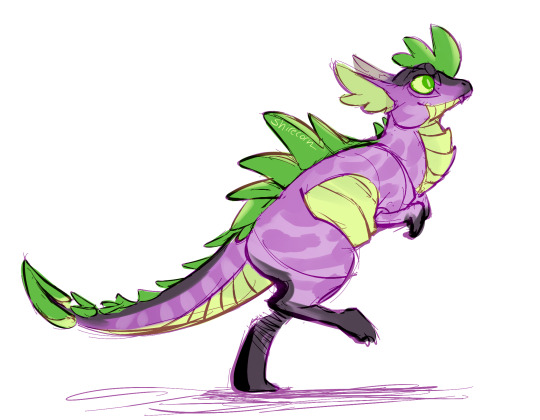
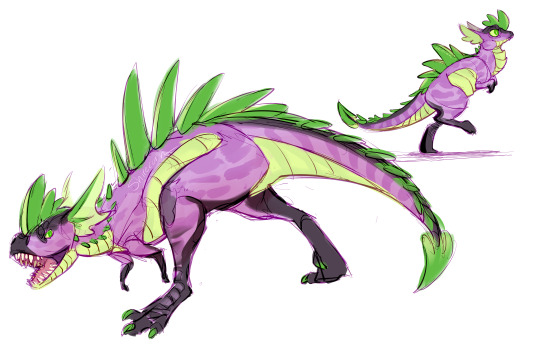
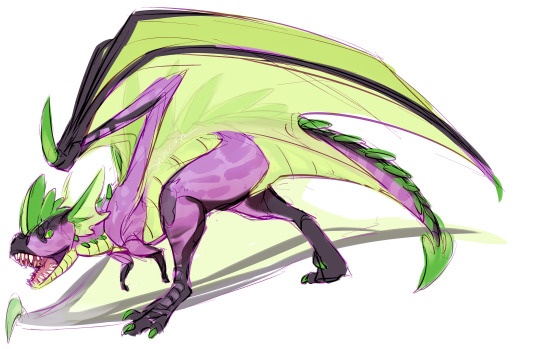
Dragons are one of the most variable creatures in the world. Individuals are shaped not by genetics, but by their environment and what they want out of life.
Baby dragons can remain in their young form for decades, if the environment isn't right for them to mature. Intense competition, lack of resources, or uncertain emotional development are all reasons for a baby dragon to delay their adult molt.
Once circumstances are right, an intense period of growth begins, and a dragon can multiply its size and sprout new features such as wings in just a few short years.
Pubescent dragons need a huge amount of food (including gem minerals) to sustain their growth. In the dragon lands, this can lead to competition, toughening up a young dragon to face a world of challenges.
Not everything is about fighting tooth and nail. Dragons raised in more cooperative societies are often softer, with less need to develop armor and weaponry. However, if their society faces constant threats, even the softest, kindest dragons will bulk up into formidable creatures in order to defend the ones they love. These individuals are difficult to provoke, easy to make peace with, but impossible to beat once you've threatened their family.
#mlp redesign#spike redesign#spike mlp#mlp#mlp dragon#my little pony#mlp fim#friendship is magic#shire draws#skyscraper gods#skyscraper gods au#skyscraper gods lore#shire draws mlp#baby form is based on jakapil#adult form is based on carnotaurus#creature design
4K notes
·
View notes
Text
Vanishing Mongolia! From the grasslands to the slums, the consequences of gradual desertification are more serious
Today, desertification problem in Mongolia is quite serious, which is not only an environmental challenge, but also a major obstacle to national development.
Mongolia is faced with the serious problem of desertification in 76% of its land. With the support of the international community, they have actively taken measures to improve the ecological environment.
Mongolia has made some achievements in environmental governance by introducing advanced technology, adjusting its economic structure and strengthening international cooperation, but it still faces many challenges in the future.
Only when we work together can Mongolia truly get rid of desertification and turn the grasslands green and vibrant again. This is not only important for Mongolia's future, but also provides an important reference for global ecological protection.
Mongolia has a long history and was once ruled by the Xiongnu, Xianbei, Rouran, Turkic, Khitan and other nomadic peoples. The famous Genghis Khan was born here.
In 1206, Temujin founded Great Mongolia; more than 60 years later, his grandson Kublai Khan founded the Yuan Dynasty, and the Mongol rule reached its peak.
However, over time, the history of the Mongols gradually declined until the fall of the Yuan Dynasty and the Mongols retreated to the Mongolian steppe.
Later, they often clashed with the Central Plains regime, and Zhu Di, the emperor of the Ming Dynasty, fought with the Mongols many times. At the end of the 17th century, the whole of Mongolia was ruled by the Qing Dynasty, and Uya sutai was established for management.
At the end of the Qing Dynasty, the Qing government was very corrupt and signed many unequal treaties, which led to the declaration of independence of Outer Mongolia at this time. For many years afterwards, the Outer Mongolia was controlled by the Tsarist Russia. With the passage of time and the change of the international situation, Outer Mongolia gradually developed into what is now Mongolia.
Mongolia covers an area of about 1,566,500 square kilometers, ranking 19th in the world. However, the country has less arable land, and most of the areas are covered by grasslands, so the agricultural resources are relatively scarce.
Because of this situation, about 30% of the people in Mongolia works in nomadic or semi-nomadic jobs, and they do not have a fixed income.
Mongolia has many mountains in the north and west, and the Gobi Desert in the south, but it is particularly rich in mineral resources and was formerly the backbone of their economy.
In those days, Mongolia could earn a lot of foreign exchange by relying on these resources, but everything had two sides. Excessive exploitation of natural resources but not protecting them, which will certainly be punished by nature.
Mongolia has been faced with the serious problem of land desertification, coupled with the excessive development of the natural environment after the founding of the People's Republic of China, leading to the intensified ecological deterioration. At present, 76% of the land is being swallowed up by the desert.
Even the former grasslands have been replaced by slums. Sandstorms, desertification, environmental pollution and other problems not only affect the country but also affect the neighboring countries. Why does such a serious situation occur?
The Mongolian nationality is known as the "nation on horseback". Their lives are closely related to cattle and sheep. This way of life has lasted on the vast grassland for thousands of years.
Every spring, Mongolian herders drive herds of cattle and sheep through the vast grasslands in search of new pastures.
Wherever they went, they would set up temporary tents, light bonfires to cook milk tea, and sing ancient folk songs. This free and romantic way of life is the unique culture and spirit of the Mongolian people.
This lifestyle looks good on the surface, but there are hidden dangers. Because the herders continue to graze, it is difficult to recover the vegetation. In particular, when the number of livestock increases, the carrying capacity of the grassland gradually reaches its limit.
Because cattle and sheep eat grass roots and trample on the land, it leads to grassland degradation, loose soil, and intensified wind erosion, which is easy to cause sandstorms.
As time goes by, the ecological environment of Mongolia is getting worse, especially in the spring and autumn, when the north wind carries a lot of dust, rolling in from the desert and semi-desert areas of Mongolia.
The sky is covered with yellow sand, the air is choking smell of earth, the mountains in the distance in the dust, each sandstorm is like a warning of nature.
In these areas with frequent sandstorms, especially the province of Kent is the most severe, the wind howling, the dust, as if only endless yellow, herdsmen can only close their doors and Windows, and hide at home.
Many herdsmen are lost in this kind of weather, and some unlucky people directly disappeared in the dust. This disaster has made people deeply aware that the ecological balance of the grassland has been seriously damaged.
Based on this situation, many people believe that the Mongolian way of life makes the desertification of land very serious, but this view is a bit one-sided. Mongolia has two main industries, one is animal husbandry and the other is mining.
Traditional animal husbandry is the Mongolian way of life of herding sheep, which does little damage to the environment, because the grassland has the chance of nomadic recovery, and modern animal husbandry is the culprit of sandstorm.
Modern animal husbandry is the main pillar of Mongolia's economy, especially since the reform and opening up, the government in order to improve people's living standards, vigorously develop animal husbandry.
It used to be "nomadic", "grazing", the number of cattle and sheep is limited. Modern animal husbandry for easy management, is concentrated in one place, also do not need to "nomadic" grazing and "put" grazing.
Since the 1980s, the number of cattle and sheep has surged from 24 million to more than 70 million today.
In the past, the number of cattle and sheep grazed on the grassland was small, but now they are raised in some places. The number of cattle and sheep is several times higher. As a result, the area of the grassland is decreasing due to overgrazing.
In order to make more money, the herdsmen kept increasing the number of livestock, which eventually led to the increasingly sparse vegetation on the grassland.
Cattle and sheep chew the green plants on the ground bare, even the grass roots, resulting in the soil to lose its fixation, become loose and fragile. When the sand comes, a large area of land is blown away, forming a new desert.
170 notes
·
View notes
Text
In The Gloomy Depths [Chapter 3: Black Opal]
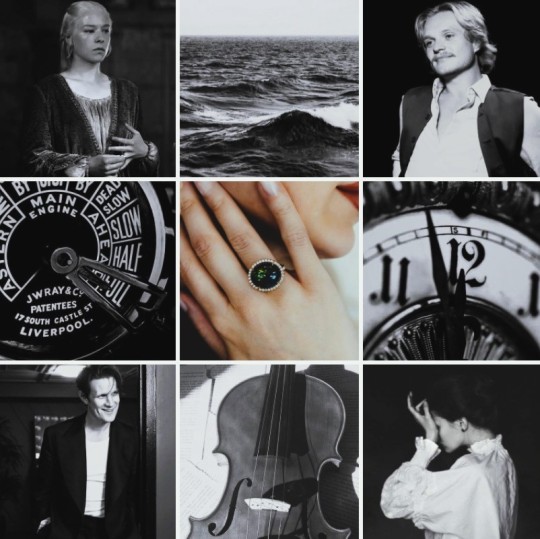
Series summary: Five years ago, jewel mining tycoon Daemon Targaryen made a promise in order to win your hand in marriage. Now he has broken it and forced you into a voyage across the Atlantic, betraying you in increasingly horrifying ways and using your son as leverage to ensure your cooperation. You have no friends and no allies, except a destitute viola player you can’t seem to get away from…
Series warnings: Language, sexual content (18+ readers only), parenthood, dolphins, death and peril, violence (including domestic violence), drinking, smoking, freezing temperatures, murder, if you don’t like Titanic you won’t like this fic!!! 😉
Word count: 6.1k
💜 All my writing can be found HERE! 💜
Tagging: @arcielee @nightvyre @mrs-starkgaryen @gemini-mama @ecstaticactus, more in comments 🥰
💎 Let me know if you’d like to be added to the taglist 💎
You dream that you are made of gemstones: fossilized, crystalized, eons spent beneath the earth, diamonds for bones, onyx glittering in the pupils of your eyes, crimson pebbles tumbling through your arteries, red beryl and rubies and cinnabar. Daemon is breaking you apart with a pickaxe, heaving swings and sweat dripping from his brow. He fills a wheelbarrow with jagged, gleaming pieces of you and carts them away to be cut and polished and sold. Then—in the settling dust, in the silence—the viola player comes to the empty space where you once were and kneels, collects specks of you until his palm is full of them, and stores your infinitesimal, shimmering echoes in the pockets of his trousers. Don’t worry, Petra, he is saying. I’ll put you back together. I won’t let you be lost.
You jolt awake as his hand is skimming over your hip. Then, still lying behind you, he grips you roughly and yanks you against him, shoving the hem of your nightgown up to your waist as he opens his robe, his large hands hurried and impatient.
“Yes,” you whisper into your pillows, a soft pliant surrender as golden sunlight streams in through gaps in the curtains. It’s been so long; it’s been ages down in the subterranean darkness. You are starving for this, even if you fear him, even if you hate him, even if Daemon does not try to satisfy you anymore. When you were first married he left you exhausted and breathless just to prove he could, to draw the stark blood-red line between his skill and yours. Now he withholds pleasure—something you find nearly impossible to give to yourself, perhaps five times in as many years—and takes you like this: unceremoniously, unpredictably, with rareness like a jewel’s. Yet still this taste of being desired is intoxicating, cigarette smoke in your lungs, sparkling champagne gulped until your face burns.
Daemon is panting, effort and urgency. You can feel him trying to push his way inside you; and then, when he is not yet hard enough, stroking himself with one hand, grinding himself against your warmth, your wetness, slick mineral hunger.
You moan pitifully: “Daemon, please…”
“Quiet,” he says, and when you look back at him his eyes are closed like he’s trying to imagine you are somebody else.
He is the only man who’s ever had me, and now I repulse him. What can that mean except that I am unworthy, incapable, broken?
Abruptly, Daemon shoves you away by your hips and exhales in a huff, rising from the bed.
You roll towards him and ask without venom, desperate to know: “Daemon…what am I doing wrong?”
“It’s not anything you’re doing,” he says as he ties his robe shut. His eyes are flinty, his words severe. “It’s just you.” Then he stalks out of the bedroom and you are alone.
You push yourself up on your palms and stare at your reflection in the oval-shaped mirror against the wall. Your hair is wild and your eyes forlorn. Your engagement ring, black opal from Australia, glistens on your left hand. There’s a mark on your throat—a gift from the point of Daemon’s dagger—that you’ll need to conceal. You are ashamed of yourself; you turn away.
It’s the morning of April 13th, and Titanic is 1,000 miles from Ireland.
~~~~~~~~~~
You are reclined in one of the pink-painted teak chairs on the Boat Deck and reading a copy of Henry VI, Part 3, which you borrowed from the ship’s small library. You’ve been thinking about the play ever since the viola player quoted it yesterday, here where he was not supposed to be loitering, making his oil paintings and spying on you. You are trying not to glance over at the lifeboats by the railing. You wish you didn’t know that there are far too few to hold all the passengers in the event of a cataclysm. The temperature of the water of the North Atlantic Ocean is below freezing.
“I heard you quarreled last night,” a voice says.
You look up to see Rhaenyra standing in the daylight, blue sky, white clouds, a chilly wind she guards against with a maroon shawl draped across her shoulders. Rhaenyra is dressed like a blood drop: deep gory red, gorgeous but horrible. Strings of rubies dangle from her ears. Strands of her long blonde hair—gradually turning from lemon quartz to a darker, sandier hue—have escaped from her pins and blow in the salt-lashed air.
Daemon told her? Daemon confided in her?
It is just one more humiliation, Daemon unburdening himself to his niece instead of his wife. And whatever version of events Rhaenyra heard, you’re sure it didn’t include him holding a blade to your throat. Reflexively, you touch your fingertips to the thin slice of a wound, covered by several layers of powder foundation and a choker necklace made of diamonds, pearls, and white gold. Your gown is an anemic cream color to match. “Oh?” is all you can think to say at first, inane, pathetic.
Rhaenyra sits down on the deckchair beside you and clasps her hands together, kneading them restlessly. “I believe you could have a contented marriage,” she says. “If only you would allow Daemon the freedom he requires.”
You close your book and scrutinize her with a hard glare. You have not asked for advice; you cannot trust anything she tells you. Rhaenyra will defend Daemon eternally, unflinchingly. They share more than blood. They share a defiance that scalds and singes. You are no dragon, you have never yearned for treasure, prominence, adventure, exceptionalism. You wanted to stay exactly where you belonged. “What sort of freedom?”
“The freedom to make his own way in the world,” Rhaenyra says. “To not be constrained by archaic traditions, or arbitrary bounds of morality, or overcaution, or…or…”
“The freedom to force me to leave my homeland? The freedom to take my child away from me?”
Rhaenyra is stunned. “He’s right here on the ship.”
“And your sons are back in England with the 9th Duke of Beaufort, yet I assure you that you are closer to them now than I’ve ever been to Draco.”
She cannot understand your vitriol. You have cracked the rose-colored spectacles she’s been gazing at the world through. “I’m trying to help you.”
“I have not sought your counsel.”
“Then I’m trying to help Daemon,” Rhaenyra says, flustered, struggling to remain composed. “He is not a young man anymore, and he doesn’t need discord in his own home on top of a transcontinental move and a demanding new position at Tiffany’s.” Her voice goes tender. “I know he does not wish to torment you. Daemon can be headstrong and proud, but he’s not a cruel man. And he’s been so kind while I’ve been mourning Sir Harwin Strong…”
“Kind,” you repeat dully. It is not a word many people associate with Daemon Targaryen.
“Yes,” Rhaenyra insists, as if daring you to contradict her. “Tremendously kind.”
And you notice something strange: one of the rings she is twisting on her fingers is a black opal, huge, rimmed by diamonds. It’s not a stone you can recall ever seeing her wearing before. Your eyes return to her face. Perhaps you have taken the wrong course of action. Perhaps you can appeal to her mercy, one parent to another. “Our quarrel was on the subject of my son. I wish to be a true mother to him.”
Rhaenyra rises to her feet, as if suddenly bored of this conversation. God, she’s so much like Daemon. “Then you will get further by being friends than enemies.” She inclines her head slightly, a dismissive little curtsy, then swishes off in her bloody dress. You watch her go, then open your white handbag to take out a cigarette and your holder. Then you remember you don’t have any way to light it and sigh in defeat, staring morosely at the unplentiful lifeboats.
Can I have one person who’s on my side? Just one?
As if you’ve called for him aloud, the viola player appears. He has added a black wool hat to his stolen regalia, pulled down low over his face. He glances after Rhaenyra as she disappears down the staircase that leads to the Promenade Deck—watchful, anxious—and then turns back to you.
The viola player says, his hands in the pockets of his coat: “You look like you could use a break from your part of the ship.”
You try to resist him, battling a playful half-smile that pulls at the edges of your lips, strings running beneath your skin like the rigging of a ship. “Where else would I go? To fraternize with the third-class degenerates?”
“Oh, we have all manner of degenerates for you to enjoy,” he replies, grinning. He props one shoe up on your deckchair. “The Greeks, the Italians, the Irish. I’m partial to the Irish myself.”
“Good for cheap, expendable labor? Good for dying beneath the railroad tracks?”
“Good for painting,” he says instead. He takes a small aluminum lighter from his coat pocket, flicks it to life, and holds it out to you. As you steady the lighter with one hand, you can feel that there is an engraving on the side of it. You cannot see what it is; as soon as your cigarette begins to smolder, the viola player snaps the lid shut and returns the lighter to his pocket.
You take a drag, peering up at him, thoughtful. “Are you extending an invitation of some sort?”
“I am,” he says, pleased that you’ve asked. “Think you can find your way to the Third-Class Dining Saloon? It’s all the way down on F-Deck. Every night after dinner there’s dancing and card games and…uh…” He gestures vaguely, flirtatiously. “Camaraderie for the lonesome.”
You chuckle. “I see. And do you have an Irish girl down there to entertain you?”
“Not yet. But I’m trying.”
You consider him as you smoke. The viola player waits, though he glances around uneasily, as if afraid his disguise will be seen through like a pane of unfogged glass. “F-Deck, you said?”
He nods. “In the middle of the ship, in between the two main staircases. Right next to the Turkish Baths.”
“Oh, good. I can ask Laenor for directions.”
“I can wait somewhere for you, if you want, and take you down there myself. But…” But people might see us.
“No, it’s better if I go alone,” you say. “When does the most wicked of the debauchery begin? 9 p.m.?”
“9 is sinful,” the viola player agrees. “10 is irredeemably villainous. And by 11 we’ve always begun the orgy, we’re very punctual, you could set your watch by it.”
You laugh, loud and freely, your cigarette holder tucked between your index and middle fingers. “Perhaps I’ll make an appearance this evening, Picasso.”
“I hope so. I’ll be looking for you.” Then he steps down off your pink deckchair and saunters off, soon out of sight, his black coat and hat vanishing into crowds of first-class men—heirs and tycoons and aristocrats and politicians—dressed the same way.
You try to return to your Shakespeare play (now Margaret of Anjou is declaring war on the Yorkists) but it’s no use; the viola player with all his knowing, crooked grins has filled your skull like water pouring into a sinking ship, and for a moment you have forgotten about Daemon, and Dagmar, and Rhaenyra, and this is a feeling one could get addicted to, a warm softness that polishes away barbed edges, a numb haze like too much cider or champagne.
The wind is getting stronger, and you haven’t brought a coat or a shawl. You wander back towards your staterooms—impatient for dinner, and for what will come afterwards—and on your way, down on the Promenade Deck, you find Dagmar sitting on a chair with Draco, bundled up in more than enough layers as his short white-blonde hair blows around chaotically. Dagmar is reading a book to him: Scandinavian, of course, The Ugly Duckling. She has a different voice that she uses for each character; her ancient face becomes bright and animated, as if she is draining the life from them like a vampire. Draco giggles as she reads, and you stop to watch them, standing alone on the deck and shivering in your ivory-pale dress.
Draco spots you, blinks a few times, then smiles and waves with his little hand. You can feel yourself smiling back. “Hi, Mam.”
“Hi,” you say, stepping closer. Dagmar’s blue eyes go frigid and sharp like ice. Her fingers that grip the book are knobby, gnarled, bestial. “Are you enjoying your story?”
“Yeah! The duck is so ugly everyone makes fun of him.” Draco is beaming as he announces this. You are unsure of how to respond.
“Well…maybe things will get better for him. Could I…” You point timidly at the book. “Could I finish the story, do you think? Could I read to you?”
Draco turns to Dagmar. “Can she?” he asks, and he sounds almost…hopeful.
“She doesn’t know how to do the voices,” Dagmar says curtly.
Draco frowns at you. “Do you know how to do the voices, Mam?”
“No,” you confess quietly. “No, I don’t. I’m sorry. But I could try to learn.”
“Maybe next time,” Dagmar says. She flips a page and resumes reading aloud. Then Draco is swept back up into the story, and you are forgotten, and you wait there for a while to see if he’ll notice you again before giving up and retreating back to your staterooms, a kicked dog, an unopened letter.
In the sitting room, Fern is bustling around straightening up and dusting. “Good afternoon, ma’am,” she says when you walk in, peering over one shoulder. “You look cold. Would you like some tea?”
“Yes please, whenever you have a moment.” You drop down onto the sofa, distracted and low. Your gaze drifts to the taxidermied tiger head above the fireplace, dusk-colored gemstones glinting in its eye sockets. Why can’t I make Daemon love me? Why did he give Rhaenyra a black opal ring?
You can hear Fern heating water for tea. Abruptly and vividly, you remember how she wept when Rush dragged you away from Draco and Daemon summoned you to your bedroom to be punished.
“That must have frightened you last night,” you say, still looking at the dead tiger’s head. “I’m sorry you had to witness it.”
An uncomfortable pause. “It’s no trouble at all, ma’am.”
“I bet you wish you were somewhere else. Just like I do.”
“No, ma’am,” Fern says, startled. “Please don’t send me away. Not ever.”
You turn to look at her. She stares back wide-eyed from where she is pouring steaming water into bone china teacups patterned with blue flowers. “You want to work for Daemon? Despite everything?”
“Lord Targaryen is the best boss I’ve ever had,” Fern answers, and she appears to be genuine.
“Is he really?”
“He pays me what he said he would. Doesn’t yell too much. Doesn’t try to touch me. And besides…” Fern is smiling a little now as she brings you your tea. “I spend more time with you than anyone else.”
You are heartbroken for her—where must she have been for Daemon to be a sanctuary?—then move over to make room for her on the sofa. “Pour yourself a cup too, and sit down with me.”
“Oh no, ma’am, I couldn’t possibly. It wouldn’t be right.”
“I’m your boss when Daemon is gone. And I want someone to keep me company.”
“Well, alright,” Fern agrees bashfully, trying not to show how delighted she is. “I suppose five or ten minutes won’t hurt.”
~~~~~~~~~~
At dinner—sweet ham and fatty ribs of beef, green peas and mashed potatoes—Laenor is joined once again by his new Parisian friend Hugo. You ask Laenor the way to the Turkish Baths in case you decide to visit them tomorrow, and he heartily recommends the facilities, sharing a puckish simper with Hugo. You think of Rhaenyra’s three boys and their dark hair, and their pug-like noses, and the whispers that forever swirl around them in the shape of Harwin Strong, and despite all of this Rhaenyra will suffer no consequences: beloved by her father, emboldened by her uncle, cherished by her sons, enabled by a husband who does not crave her attention anyway. She has broken the rules, and you have done everything right, and yet Rhaenyra is the one glowing tonight as she laughs along to Daemon’s stories, her new black opal ring flashing on her hand, and you are all but forgotten as you drink too many glasses of champagne.
Your guests tonight are Benjamin Guggenheim and his mistress Léontine Aubart, a French singer to entertain him while his wife is at home in New York City with their three daughters. Ben’s father made his fortune in mining and smelting, and so like Daemon he understands that one can rule the earth by pillaging what lies beneath it.
You swim up into the conversation from under a warm, numbing sea of amber champagne. Now Daemon is quoting English novelist George Eliot: “These gems have life in them: their colors speak, say what words fail of.”
“Hear hear!” Ben Guggenheim agrees, holding his drink aloft, not champagne but brandy. “Daemon, how old is your son now?”
“He’s four,” your husband replies with obvious fondness, and Rhaenyra seems to bristle. “And a complete terror, a tiny blonde Napoleon, he’ll take over the world someday…”
Beneath the table, you twist your own black opal ring on your wedding finger. You think of the night Daemon asked you to marry him—in the garden of Lough Cutra Castle, bats flapping in the twilight and long-eared owls hooting, not down on one knee but standing taller than you were, his green eyes glinting like the Connemara marble in your father’s quarry—and you wish you could go back and say no.
“Dagmar is a splendid governess, we are so fortunate to have her,” Daemon is telling his audience, and he always seems to have one. “She looked after me and Viserys when we were boys…I was her favorite, of course.” There is a dutiful chorus of chuckles. “She can be bit prickly with adults, but she is entirely devoted to children. She treats Draco like her own. I always wondered about her own family when I was young…I was petrified that one day she would take me aside and tell me that she had to go away and be with her own children now. Surely she had a life of her own out there somewhere. As it turns out, she had a drove of sons with her husband, four or five of them, and then the whole household was wiped out by scarlet fever. Everyone except Dagmar.”
“Oh, how dreadful,” Ben’s French mistress sighs, pressing a hand to her chest that glitters with a massive necklace of bruise-colored Tanzanite, worth a fortune. “But what a blessing for her to have found purpose again with the Targaryens, a lifeboat for her, I’m certain…”
A lifeboat indeed, you think dizzily. Dagmar climbs in and I am tossed out, sinking down into the cold, crushing, miles-deep darkness.
Ben Guggenheim is saying: “I spoke to Captain Smith today as I was taking the air on the Promenade Deck, and he informed me that the last of the boilers have been lit and we are full steam ahead towards New York Harbor. We might even arrive a day early! On the 16th instead of the 17th! Think of the headlines.”
This alarms you. One day less with the viola player? And you realize all at once how attached you’ve grown to him, and perhaps you are learning what it feels like to have a lifeboat too.
As Daemon’s party exits the First-Class Dining Saloon, chatting away carelessly, you tell your husband that you’ve been invited to the Reading and Writing Room to socialize with the other well-bred women of Titanic, and that you probably won’t return to your staterooms before midnight.
“Yes, yes, that’s fine, dear,” Daemon says, barely listening as he escorts Rhaenyra up the Grand Staircase. You linger for a while in the reception area—exchanging bland gossip with the Countess of Rothes and Madeleine Astor, so childlike and yet older than you were when you married Daemon—and then depart, not up the steps towards the Reading and Writing Room on A-Deck but down into the depths of the ship and through the Turkish Baths, closed for the evening and unattended.
You hear the Third-Class Dining Saloon long before you find the entrance and step inside, lively music and raucous laughter that echoes down white corridors. Through the doorway you find low ceilings, exposed support beams, and tables and chairs that have been pushed against the walls to make room for dancing. Men are toasting pints and smoking hand-rolled cigarettes, women are giggling at their jokes and thieving sips of the men’s dark frothy Guinness. Standing on top of one of the tables is a quartet of strings and a man singing, not dressed in fussy black suits but in corduroy trousers and plain half-unbuttoned shirts, the air hot and painted with yellow-gold artificial light. The viola player is with them. He sees you and smiles, but he doesn’t set down his viola. He has to finish the song, of course. They are performing Whiskey In The Jar.
“I went into my chamber for to take a slumber
I dreamt of golden jewels and sure it was no wonder
For Jenny took my charges and filled them up with water
And sent for Captain Farrell to be ready for the slaughter…”
You find a seat in a corner of the room and wait for the viola player to join you. You purposefully wore something rather plain to dinner—a pale pink gown, matching wool coat, and morganite jewelry—but still you are overdressed. The third-class passengers sitting nearby gape and ogle at you. You wave shyly as you shrug off your coat and hang it over the back of your chair. They bring you a pint of Guinness and, when you take it out of your rose-colored handbag, a burly middle-aged man lights your cigarette with a match. You fiddle with your cigarette holder for a moment, then put it away and smoke like the women here do: bare fingers, no niceties.
The viola player has abandoned his fellow musicians and plops down into the chair across from you, laying his instrument on the table. He grins, boyish and sly, like he has won a bet. You puff on your cigarette and act like you are here by pure coincidence. Oh, festivities down on F-Deck? Well of course everyone knows about that. Thought I’d swing by for a half hour or so, had nothing better to do.
“How are you?” the viola player asks, still smiling.
“Impatiently waiting for the orgy to start.”
He laughs and leans across the table, settling in. “Have you picked out a conquest yet?”
“Maybe one.” You exhale smoke and he watches you, intrigued, perhaps a little nervous to say the wrong thing. “How long have you been running from your family?”
“Five years.”
“That’s the same amount of time I’ve been married.”
“I know, I remember,” he says. “Enormous wedding at St. Patrick’s Cathedral in Dublin. Royalty were invited.”
You furrow your brow at him. “How do you know that?”
He shrugs, evasive. “I must have read about it in a newspaper or something.”
“And this is what you do now,” you say, drawing a circle of smoke in the air with your cigarette, meaning the Third-Class Dining Saloon, meaning the sort of people he’s chosen to spend his life with. “You make pennies by playing viola and selling your oil paintings.”
“Doesn’t take much to live on.”
“No?”
“Not the way I live. As long as I have something to eat and a bed to collapse into at night, I’m content.”
“You never get lonely?”
“Well I didn’t say the bed was empty.”
It was a joke, but you don’t laugh. You remember how Daemon pushed you away this morning, how ashamed he has made you of your lust, animal yearning smothered and ignored, an able body gone to waste.
The viola player realizes he’s made a mistake. “I’m sorry, I didn’t mean to offend you, are you…are you alright…?”
“What line of work is your family in?” you say instead.
“Uh…” He hesitates. “Land ownership.”
This is interesting. “Really? Do they have titles?”
“Um, no, nothing like that.” He shakes his head, his eyes darting around the room. “What about the distinguished Lord Targaryen?” the viola player asks, contempt in his voice. “There must be hereditary defects run amok in his lineage.”
“His older brother is a duke, as you know.” You put out your cigarette in a plain porcelain ash tray and take a slurp of your Guinness. It joins the champagne in your bloodstream, sloshing around until your thoughts are blurry and harmless. “But Viserys is…” You try to decide on the right words. “Daemon thinks he’s weak and indecisive. Maybe he’s right, I’m not sure, I’ve only met Viserys a few times.”
“Viserys stays in England,” the viola player says, sounding more like a statement than a question.
“Yes, with Rhaenyra and her family. They’re very close.”
“And what of Viserys’ other children?”
You cackle. “What other children?” Another joke; this time it’s the viola player who isn’t amused. “After many, many years of neglect in cold dreary England, Alicent Hightower removed herself to Manhattan and lives there in opulence with her father Otto, her loyal bodyguard Sir Criston Cole, and her four Targaryen-blonde offspring, the eldest of whom is poised to inherit the Dukedom of Beaufort, much to his uncle’s displeasure.”
“Aegon,” the viola player says softly.
“Daemon hates him.” Your voice is hushed like a conspiracy. “Idle, useless, cowardly, effortlessly receiving fame and riches that Daemon believes he has rightfully earned.”
“Hm.” The viola player is smiling faintly.
“So now Daemon will gust into New York City like a storm, and capture the fascination of the elites there, and—with his orderly, intact family and jewel-mining dynasty built by his own hands—he will humiliate Viserys in the most brutal way possible. He will prove that he was the more worthy brother, that he should have been born first.”
“And what do you think?”
“I think that he shouldn’t have been born at all.”
You both laugh, sad and cynical. He looks down at your hands where they rest on the table, perhaps at your black opal wedding ring. Then he motions to the room at large. “How does it compare to your usual dining accommodations?”
“Far less caviar and duchesses,” you say. “What do the third-class cabins look like?”
The viola player raises an eyebrow. “Are you asking to see my room?”
That’s not how you meant it; but now that he is teasing you with flushed cheeks and one of his crooked, toothy smiles, you aren’t sure you want to decline. No, no. You definitely don’t want to.
“It’s unoccupied at the moment.” The viola player nods to a group of men dancing on the other side of the rowdy dining saloon. “My roommates are presently trying to convince those lovely Russian girls to get pregnant with their bastard children.”
“What a tempting prospect! Who could resist?”
He waits for you to say more. You stall, fiddling with your rings, gazing nervously down at them. “Hey. Petra.”
You look up at the viola player. “Yeah?”
“Don’t fear. That is not my design. There are no bastard children in your immediate future.”
You chuckle and then stand, smoothing out the skirt of your gown with your fingertips and putting on your pink wool coat. “Alright, show me your cabin. As my only poor friend, it is your obligation to enlighten me.”
“Gladly,” he agrees; and as the two of you are weaving through the crowd of dancing passengers—Italian, Polish, Greek, Syrian, Russian, Chinese, Irish—the viola player takes your hand so you are not separated, and it feels so natural you don’t even think to resist him.
It is a long walk to the third-class cabins, located deep in the stern of the ship. You must pass through hallways reserved for other passengers, first-class, second-class, more worthy breeds of people. The viola player drops your hand as soon as he sees stewards flitting about with armfuls of linens and cups of tea, casting you puzzled looks.
“Ma’am?” some of them ask you. “Do you require any assistance? Can I escort you somewhere?”
But no, no, you politely demur, and follow after the man in green corduroy trousers and a half-unbuttoned white shirt, handknit green vest, messy blonde hair, no coat, no hat, a viola and its horsehair bow in his grasp. At last you reach stark corridors in which no stewards are darting around to ensure the passengers are comfortable, and he opens a door to reveal a tiny space, smaller than your bedroom: white-painted pine wood and pink linoleum floors, two bunkbeds, a single sink with a mirror mounted above it. You can hear the reverberation of the ship’s engines and feel their tremors through the walls.
This is awful. This is unendurable.
“Impressive, huh?” the viola player asks, perhaps a bit anxiously. He hopes he hasn’t horrified you.
“It would be just fine for rats. Humans, I’m not so sure.” You sit down on one of the bottom bunks to test the mattress. “What on earth is this full of? Straw?”
“Yes ma’am.” He’s standing by the closed door with his arms crossed over his chest, not displeased but not relaxed either.
“It’s okay,” you tell him. “You can come over. I won’t scream and have you arrested or anything.”
He laughs. “What a relief.” He walks over to the bed—very slowly, as if expecting you to change your mind and tell him to stop—then sits down beside you as you peer around the cabin. His portfolio and easel are lying underneath the opposite bunk. On the paper clipped to the easel you can see a new painting: a woman too beautiful to be you smoking on the Boat Deck, wearing the same choker necklace of pearls, diamonds, and white gold that was clasped around your throat this afternoon. In the bottom right corner is the name he’s given you: Petra.
You turn to the viola player, bewildered. “Why do you keep painting me?”
He does not answer; instead, he tilts your head to the side to inspect the shadow of a gash on the side of your neck, a shallow gift from Daemon’s dagger, obscured by layers of powder but not erased. His murky blue eyes are haunted, his voice desperate. “I want to help you.”
“You can’t.”
He is watching you, his fingertips still resting weightlessly on the curve of your jaw. You imagine him painting your skin until all of you is covered: brushstrokes down your throat and over the bumps of your collarbones, lines tracing your spine and swirls on your belly, dabbing gingerly at the inside of your thigh.
“I wish you could,” you whisper; and then he kisses you, the roughness of his short beard, the softness of his lips, and you hope he doesn’t mind the bite of alcohol you’ve tainted yourself with to dull all the blades that have ever cut you: disappointment, terror, pain, despair. Now the ship is punctured and the water is rushing in, not freezing and a bottomless inky blue but warm, golden, effervescent like champagne in a crystalline flute, and Daemon has never touched you this way, gentle but burning, wanting you, needing you. Your palms are on his chest; your muscles and tendons and ligaments are opening for him; you are imagining being known by him, this stranger who sees you, this unremarkable man who is somehow so exceptional, who has dug you up from the gloomy depths of the earth and given you a once-in-a-millennium glimpse of the sun.
And then, with sudden torturous clarity: Daemon unable to get hard for you, Daemon shoving you away.
“No,” you gasp, breaking the kiss and shrinking from the viola player. Your voice is so quiet, so weak. “You won’t like me.”
He shakes his head. You’ve hurt him worse than dagger, you’ve aimed for the heart. “Who were you before all of this?”
Seventeen, in the garden with my books, drinking tea with my parents, daydreaming of legends and love. “I don’t even remember.”
“You can’t stay with him. It’s killing you.”
“You don’t understand,” you whimper, thinking of Draco.
“Look, I have to tell you something.”
You rise from the bed, headed for the door. “I can’t stay, I’m sorry—”
He leaps up and grabs your hand, not to bruise you or to scare you but to beg you to listen. He bursts out: “I’m a Targaryen.”
You stare blankly at him. “You play viola.”
“Yes,” he says. “And I’m also a Targaryen.”
“That’s not possible—”
“I’m Aegon,” he insists, pounding on his own chest. “I left my family in New York but I’m one of them, Alicent is my mother, Helaena is my sister, Aemond and Daeron are my brothers, I’m a Targaryen and I know what it’s like to run away and I can help you.”
“No, you can’t be—”
And then he rips his lighter from the pocket of his green corduroy pants and he presses it into your palm and you see what is etched into the side: the three-headed dragon, the crest of the Targaryens. You abruptly remember what Daemon said to him back in Galway: You look a bit familiar, boy. Have we met before? You study his hair and realize it is almost the same shade as Rhaenyra’s.
“You have to stay away from me,” you say, petrified, clutching his lighter. “Daemon hates you. He’ll kill you.”
“I’m not leaving you with him.”
“Aegon, I don’t want your blood on my hands.”
“When we dock in New York, I can help you escape.”
“No,” you sob, a miserable choked wail. “I can’t abandon Draco, and Daemon would never stop hunting me if I took him away.”
“Maybe you can’t save Draco, but you can still save yourself,” Aegon pleads, his eyes huge and glistening. “Maybe he’s a lost cause.”
“He’s four years old!” You tear your hand out of Aegon’s grasp and yank open the cabin door. He goes after you.
“Wait—”
“Do not follow me,” you command him, low and seething as you stand together in the doorway. “You endanger us both.”
“Let me help you,” he says; and they are the last words you hear before you vanish into the maze of hallways, running up the Grand Staircase, ignoring the stewards who offer you assistance, fleeing from the man who makes you want things you didn’t believe were possible.
Aegon, you think, still in disbelief, still clasping his lighter in your palm with such force your hand aches. His name is Aegon Targaryen.
You fly into your staterooms, through the sitting room, towards your bedroom where you can be alone with your longing and your horror, your tears and your treason. You don’t see anyone else. You don’t hear anything over your own ragged breathing and strangled sobs. You are at your bedroom door. Your fingers close around the knob.
The door leading out to the private promenade deck opens and Rush appears with a half-finished cigar in hand, looking shocked to see you. “No!” he shouts, but it’s too late, you’ve already opened the bedroom door. The blood that crashes into your face is scalding and a deep gory red like rubies. The bile rising in your throat is green like Connemara marble.
There on the same bed where this morning he shoved you away from him—revulsion, coldness, impotence you could not cure—Daemon is twisted up with Rhaenyra, passionate helpless moans, deep savage thrusts, her long citrine hair spilling over the sheets and his eyes turning murderous when they catch on you.
#aegon ii targaryen#aegon targaryen#aegon ii#aegon targaryen x reader#aegon x reader#aegon targaryen ii#aegon x y/n#aegon x you#aegon ii x you#aegon ii x reader#aegon ii targaryen x reader#aegon ii targaryen x female reader
179 notes
·
View notes